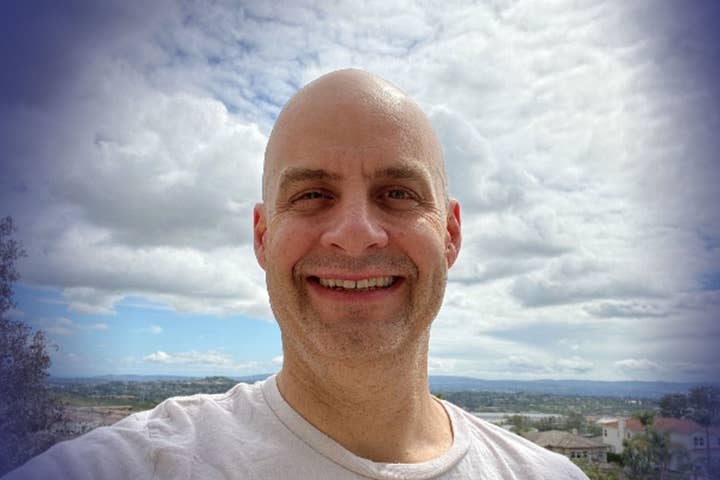Mike Morhaime's new games company dreams of being an industry beacon
Dreamhaven, Moonshot, and Secret Door leads share their hopes for a venture built on creative freedom, experimentation, and cooperation
In late 2018 and throughout 2019, a number of experienced Blizzard veterans with a decade or more experience apiece were each reaching individual crossroads in their careers.
Jason Chayes, Dustin Browder, Chris Sigaty, Eric Dodds, and former Blizzard president Mike Morhaime all left the company at different points during that period. Speaking to GamesIndustry.biz, each says that at the time, they didn't really have a particular vision for what they wanted to do afterward.
In Browder's specific case, he had a project killed and was beginning to consider his future path. And while not all of the others were in that exact situation, his description of his feelings and thought processes were echoed by several of the others.
"One of the things that is true for many of us who work in games is there is a code of honor associated with when you leave your team in games," he says. "And some of us take it more seriously than others, but many of us take it very seriously. You don't leave your team two weeks before you ship. You know even if all your bugs are fixed, you don't leave because that could do a lot of damage to that product, it can hurt a lot of customers, it can make people have to work a lot of extra hours to cover for your loss. You just don't do that.
"Once you are a design leader, the opportunities to leave are few and far between that still would satisfy that code of honor. Every time a project ends, whether well or badly, you take stock and go, 'Is it okay for me to go now? Or should I fire up another team here? What am I doing?'"

"What am I doing?" was a question shared by all five, who each described a similar process post-Blizzard: spending time with their family, traveling, talking to other people in the business, and examining different possibilities: including working elsewhere, starting a new studio, investing, or leaving games entirely. And as the five explored their options, they began to talk to one another. Chayes and Browder specifically began thinking of forming a studio together.
And as their studio idea coalesced, they started talking to Morhaime and his wife, fellow Blizzard veteran Amy Morhaime, who were beginning to hone in on an idea of their own.
"Every time a project ends, whether well or badly, you take stock and go, 'Is it okay for me to go now? Or should I fire up another team?'"
Dustin Browder
"A lot of times you have people that are really good at making games and they start up a new thing," Morhaime says. "And there's a lot of stuff that you have to do that just has nothing to do with making games, and it can be a really big distraction. And that's not necessarily why they want to [make games].
"Amy had a ton of experience on the operational side...and I have a lot of experience in creating an environment for creators that enabled them to focus on the right things and a creative space that allows them to innovate. So we thought we could leverage that experience and our network to build something really awesome."
What the Morhaimes built was Dreamhaven, a new Irvine-based game company revealed today that will serve as a publishing and support pillar as well as a parent company to two new games studios. The first is Moonshot, headed by Chayes, Browder, and fellow Blizzard veteran Ben Thompson. And the other is called Secret Door, led by Sigaty, Dodds, and another ex-Blizzard developer, Alan Dabiri.

The company is still in its early days and is not yet ready to announce any specific projects. But all five of its members that I spoke to described the vision behind the company in similar terms: Dreamhaven wants to provide support and freedom for its developers to be bold and experimental, with more of a focus on creativity than on rapidly turning massive profits. This means that both Moonshot and Secret Door will be given a lot of agency and trust to make whatever games they want to pursue, with Dreamhaven supporting those ambitions rather than interfering.
"I feel very passionately about creating an environment for creators to do their best work"
Mike Morhaime
That said, Morhaime wants the studios to support and collaborate with one another, rather than compete. All the studio leads have "some amount of equity ownership" in Dreamhaven, he says, which gives them a vested interest in working together, sharing ideas and resources.
"I feel very passionately about creating an environment for creators to do their best work," Morhaime continues. "I think it's important that Moonshot and Secret Door are able to form their identity and their own unique spins on that culture, that all pull from the ideas and beliefs that [make up Dreamhaven], but maybe focus in different areas and approach things in slightly different ways.
"With agency comes responsibility for course correction along the way, because things aren't always going to go as planned. And if somebody else is controlling the steering wheel, and you're sitting in the backseat, you can't be responsible for where the car goes. Ultimately, the studios are going to be making the games and they have to be responsible for what happens. That's part of how you innovate and how you iterate to produce something that you're proud of.

"We also want to make a positive dent on the world. This isn't just chasing financial reward. We have a strong belief that financial reward comes when you have engaged employees and happy customers. And that leads to a great product and financial reward. But the path that we've chosen is to focus on is the environment, engaged employees, the agency for the studios, and producing great products that yield happy customers and a healthy community."
But he also wants each studio to have its own unique flavor and focus. Chayes says that Moonshot broadly wants to work on "games that create a sense of wonder," with a focus on cooperative play and shared stories. And though it's still early, Moonshot has already decided on its first project after pitching a wide range of ideas internally.
"One of the things we've talked about is there are so many platforms, there are so many opportunities, and we love playing on all these things," Chayes says. "We've had many pitches that ran the gamut from smaller games to bigger games, different consoles, PC, mobile, VR, all over the board. But the threads that come through are some of the things we mentioned earlier, that we want to do good with our games; we want to bring people together. So that obviously implies maybe multiplayer aspects and stuff like that."
Meanwhile, while Secret Door shares Moonshot's appreciation of social play, Sigaty says the team also has particular interests in board games and tabletop RPGs. They, too, have identified a game they want to make, which Sigaty says is in "some uncharted territory for us."

"Oftentimes in big companies there are expectations and immediately you don't even think down a particular path because maybe it doesn't fit within a particular plan," he says. "In this case, it was just really refreshing to start with whatever we wanted. And there's a lot of this bleeding-edge technology that's coming together...The freedom to really just explore whatever passions we have is such a breath of fresh air."
He adds that Secret Door specifically wants to focus on staying small, without biting off something too massive. And Chayes affirms that there's room within Dreamhaven for studios and projects at a variety of sizes and scales. "We're not called 'Just Small Dreamhaven,'" he says.
"Oftentimes in big companies there are expectations and immediately you don't even think down a particular path because maybe it doesn't fit within a particular plan"
Chris Sigaty
Chayes, Sigaty, Dodds, and Browder all mention at different points that they were drawn to the Morhaimes' venture both due to their comfort working with their fellow former Blizzard colleagues, as well as a trust in Morhaime's leadership. Browder specifically shares an anecdote that he says exemplifies the kind of support he trusts he'll receive. He says that in late 2012 when he was working to finish the campaign for Heart of the Swarm, he was called to an important meeting near Morhaime's office. But he was feeling overwhelmed and was stressed at the idea of taking time away from the campaign. Morhaime approached him and asked how he was -- Browder told him the truth.
"And he's like, 'Wow, you know, shipping an RTS campaign is one of the hardest jobs in the business. Don't worry about this meeting. Just relax. Think about your campaign. There's your notebook, keep working on it if you want. We'll make sure we get you through this and get you out here because what you're doing is really difficult.' And he got me out of that meeting really easily. He got me back in with the team and we went back to work. And in that moment, I felt so supported. And I knew that this was somebody who, as much as he could, tried to understand what was going on with everybody in the organization. It's a small moment, you might think, but you add up all of those moments, and you get something amazing."

Chayes echoes this idea when I ask him what success for Dreamhaven, Moonshot, and Secret Door would look like for him.
"We want to build an environment where people can do their best work," he says. "One of the things that can happen a lot when you're making games is there's so much friction that can come in from other forces, whether it's pressure to hit particular timeframes, or particular business models, or whatever it is. We want to find ways to be successful as a business. But even more important than that, we want to find ways to reduce that friction and allow people to really connect with the game they're making...so that whatever the idea, whatever the thing they're excited about, there are low friction ways to see it brought to the light of day.
"We're doing a lot of work to figure out how we can do that in the context of our studio. If we can get to a place where everybody can be consistently doing their best work and feeling very connected to the game, that would be a wonderful thing."
Morhaime comes to the same conclusion but adds that building an experimental, sustainable, positive studio culture doesn't only impact those within Dreamhaven.
"We want, if I may be so bold as to say, to be a beacon to the industry," he says, lightly referencing the studio's lighthouse logo art. "There's a better way of approaching the business of games and the operation of a game company that can produce great results, both in terms of products and financial reward and work environment, and that maybe can help elevate the entire industry."
